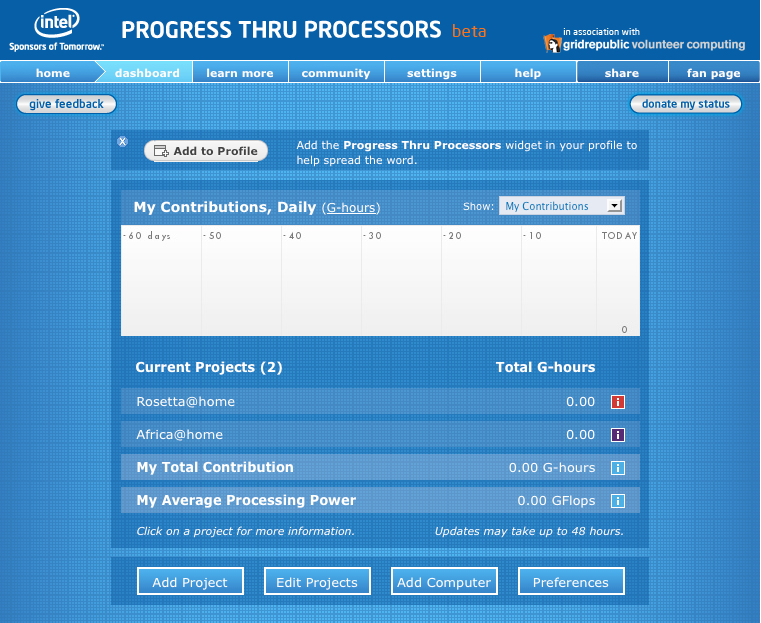Donate Your Computer’s Idle Time To a Good Cause On Facebook
The space geeks of the world have long known about such distributed computing initiatives like SETI@Home, which taps into a...

The space geeks of the world have long known about such distributed computing initiatives like SETI@Home, which taps into a network of logged-in home computers, using their idle processing power to crunch radio telescope data for signs of life. Similar applications exist for the PlayStation 3 (Folding@Home, for protein research) and several other platforms.
Now, Intel has joined up with GridRepublic to develop a Facebook interface for distributed computing, which allows users to add, manage and monitor the the idle processor cycles they’re donating to distributed computing projects across the web.
Currently the Facebook app supports three projects, which include Rosetta@Home (more protein folding in search of disease cures), Africa@Home (lending processing power to African institutions) and Climateprediction.net (forcasting global climate change).
With a name like Intel, and a widely used platform such as Facebook, GridRepublic might actually succeed in getting their software (and ideas) out to the masses.
But at the same time, won’t all that power consumption from idle computing offset some of the good deeds done here? [via Physorg and ZDnet]